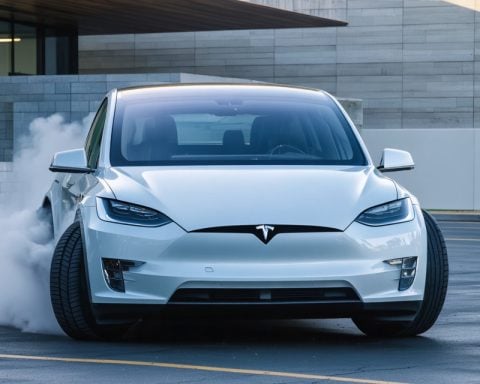Wilkes County Schools Leads the Way
Wilkes County Schools (WCS) has reached an impressive landmark by becoming the first school district in Georgia to officially transition all 25 of its daily school bus routes to cleaner, zero-emission vehicles. This groundbreaking initiative involves utilizing a fleet comprising both electric and ultra-low-emission propane buses, effectively doing away with traditional diesel models. The introduction of these modern buses not only enhances air quality for students and the community but also cuts transportation costs significantly.
With five electric and twelve propane-powered school buses from Blue Bird Corporation, WCS can now provide eco-friendly transport for approximately 60 students on each bus for significant distances—up to 130 miles on electric power and 250 miles on propane. This transition is expected to lower energy expenses dramatically, with electric buses costing only about 19 cents per mile compared to diesel, which can rack up to 79 cents per mile.
To support the new electric fleet, five Tellus charging stations have been installed, ensuring that these buses are always ready to go. The initiative was backed by a substantial grant from the EPA, helping to pave the way for a clean transportation future across America.
With a commitment to sustainability, WCS is setting a remarkable example of innovation in student transportation, promoting both public health and environmental stewardship.
Wilkes County Schools Pioneers Clean Transportation: A Model for Future Districts
The transition made by Wilkes County Schools (WCS) to cleaner, zero-emission vehicles marks a significant achievement not only for the district but also for the larger educational landscape in the United States. This initiative highlights a growing trend among school districts to adopt sustainable practices and reduce their carbon footprint.
Features of WCS’s Clean Transportation Initiative
1. Fleet Composition: WCS’s fleet includes five electric buses and twelve propane-powered buses, sourced from the reputable Blue Bird Corporation. This diverse approach ensures versatility and efficiency in school transportation.
2. Environmental Impact: By replacing traditional diesel buses, WCS is significantly improving local air quality. Studies have shown that reducing emissions from school buses can have a positive impact on the respiratory health of students and the broader community.
3. Operational Efficiency: The new electric buses are capable of traveling up to 130 miles on a single charge, while propane buses can cover distances of up to 250 miles. This range allows WCS to service a broad geographic area without compromising on efficiency.
Cost Analysis
Switching to electric and propane buses has yielded impressive savings. The cost to operate an electric bus is approximately 19 cents per mile, vastly lower than the 79 cents per mile for a traditional diesel bus. Such reductions in operational costs can be redirected towards educational resources, thus benefiting students directly.
Supporting Infrastructure and Grants
To ensure the effectiveness of the new bus fleet, WCS has installed five Tellus charging stations. These stations are essential for the seamless operation of the electric buses, ensuring they are fully charged and ready for daily routes.
The initiative received substantial support from a grant from the Environmental Protection Agency (EPA), emphasizing the role of federal support in local sustainability efforts. This grant not only facilitated the purchase of the buses but also helped fund the necessary infrastructure for charging and maintenance.
Sustainability Goals
Wilkes County Schools is setting a benchmark for sustainability in public transportation. With an increasing number of districts exploring green alternatives, WCS serves as a role model for how educational institutions can lead social change. Their initiative resonates within a larger context of environmental consciousness, aligning with national goals to reduce greenhouse gas emissions.
Conclusion and Future Implications
As more school districts learn from WCS’s pioneering steps, the potential for widespread adoption of clean transportation methods grows. This could pave the way for innovative educational sustainability practices and inspire further investments in eco-friendly technologies.
For more information on green initiatives in education, visit Edutopia.


















